ASUS RS720A-E12-RS24U Internal Hardware Overview
Here is an overview with the risers and airflow guides removed to help orient you as we go through this. We will generally move from the front of the system to the rear.
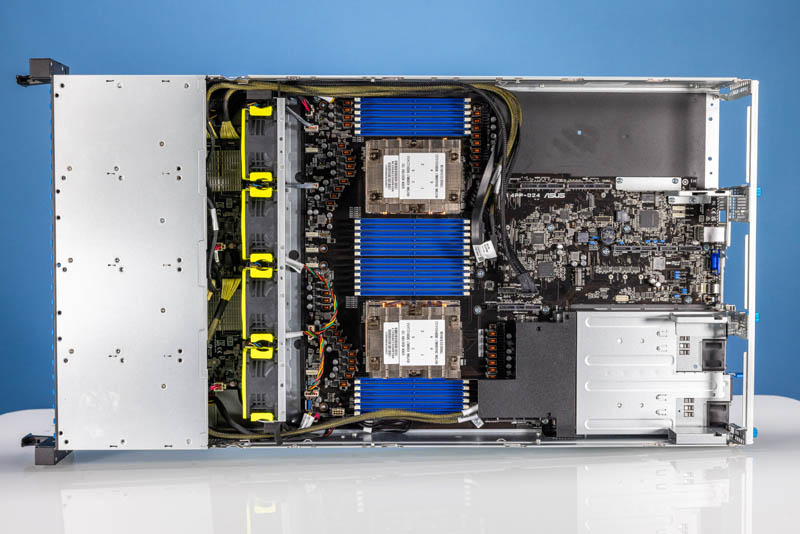
The first item one will notice opening the system is the four fan array and airflow guide. This is a flexible airflow guide, and it is one where we wish that ASUS used a hard plastic option instead since that would be a bit easier to get in place. Still, ASUS does a lot to make the flexible guide relatively easy to replace.
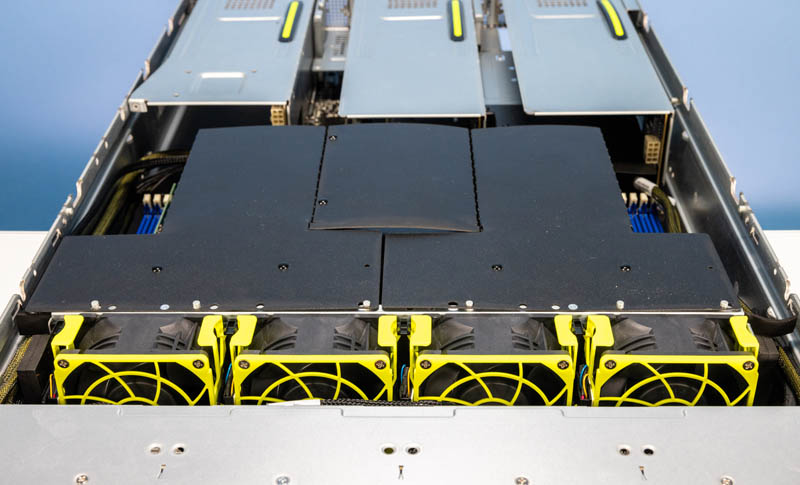
The fans are each in brightly colored fan carriers that make them easy to replace.
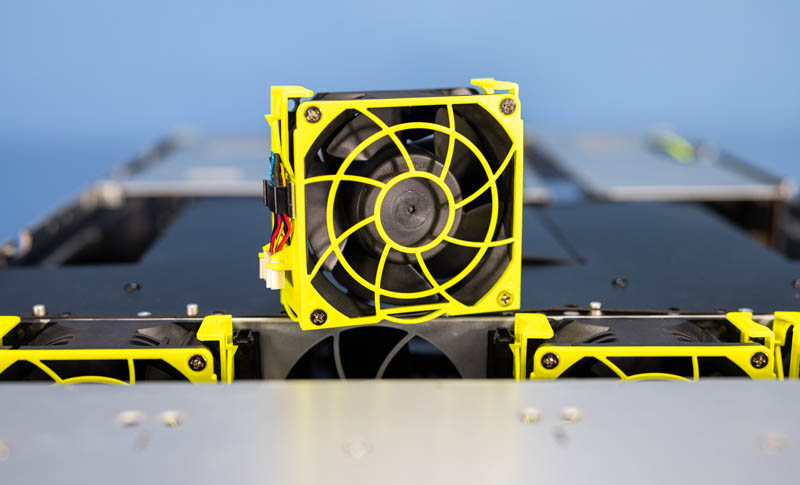
Inside the system, we get to the heart. Here we have two AMD EPYC 9004 “Genoa” processors. We recently did a big piece on the AMD EPYC Genoa for its launch, so if you want to learn more, that is where to look.
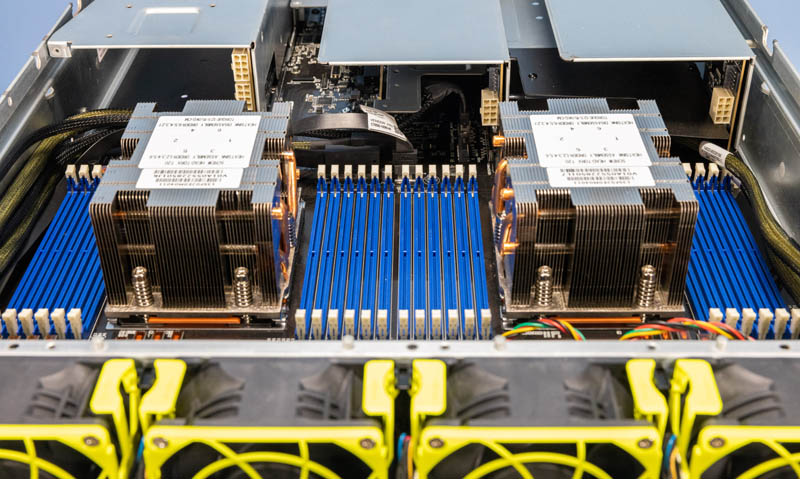
Each CPU has 12x DDR5 DIMM slots for a total of 24 in the system. Our test system only arrived with two 32GB modules, but Micron stepped in and loaned us 24x 32GB DDR5 DIMMs for testing. Something that is nice here is that one continues to increase memory bandwidth alongside capacity when going beyond 8 DIMMs to 12 per CPU. One challenge at this point is that while the current generation DDR5 has roughly 50% more bandwidth than the previous generation, it also costs more per GB. That adds up when installing 24x DIMMs into a system.
The motherboard is marked K1 4PP-D24. Something you may notice is that the risers are using GENZ connectors. This is not a GEN-Z system.
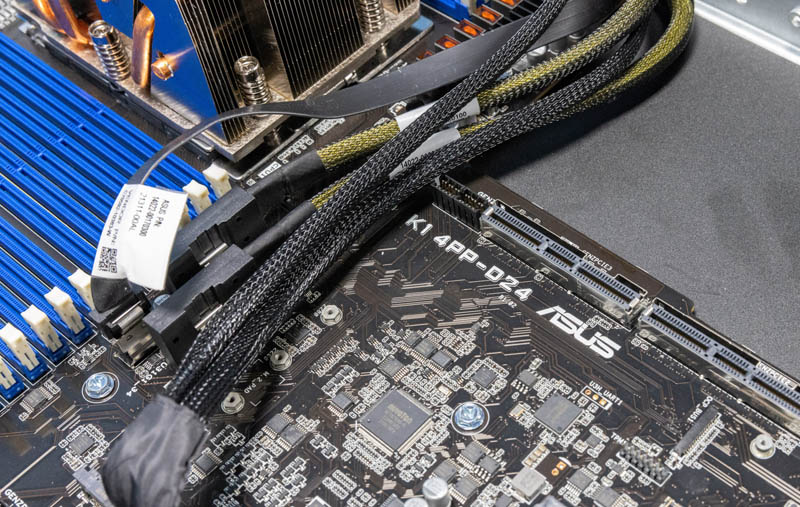
In the center of the system we have PCIe and SATA cable connectors. These provide PCIe connectivity to the NVMe backplane on the front as well as SATA connectivity for bays 1-8.
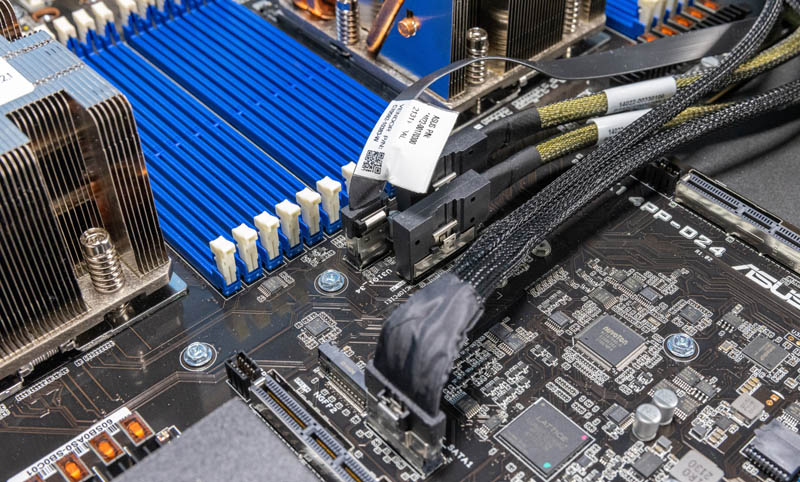
There is a small feature hiding under these cables. One of the M.2 slots is here. The other is to the right of the photo below. Internally, these are the two M.2 slots for the system, commonly used for boot.
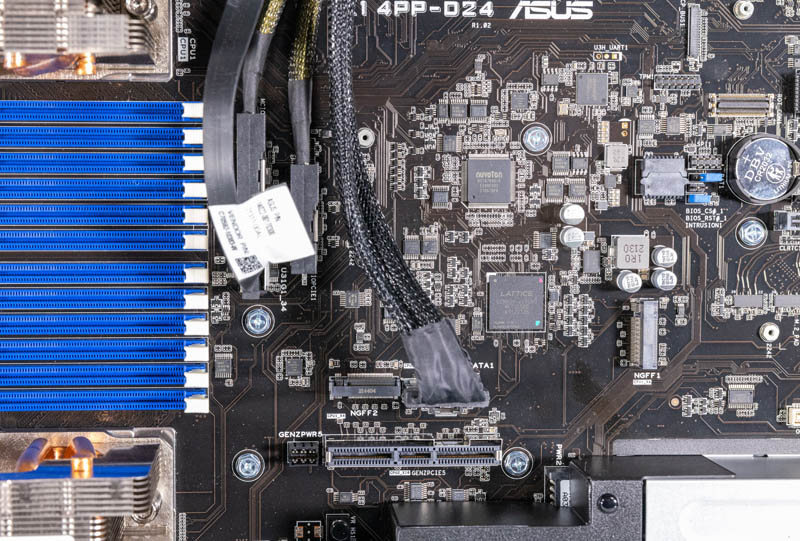
Inside the system, we also get a microSD card slot. There is also an internal USB 3 Type-A header that, instead of being in this area, is near the fan partition on the motherboard.
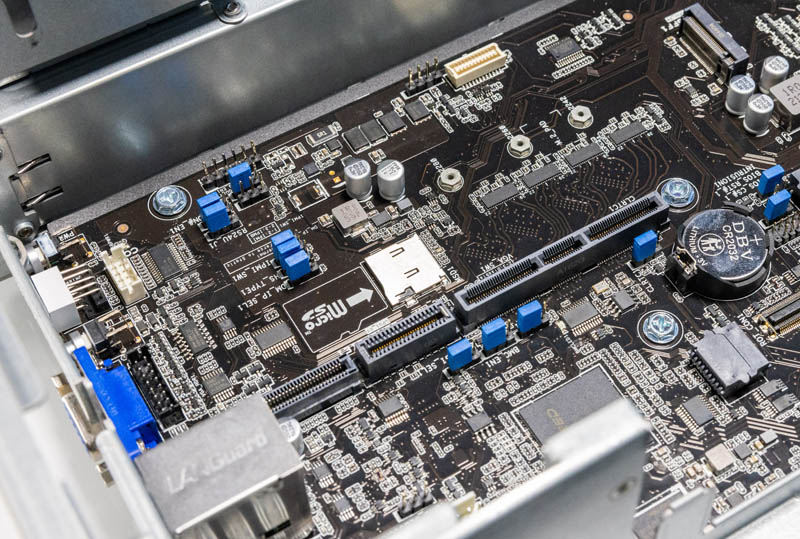
Management is provided by the ASPEED AST2600 BMC.
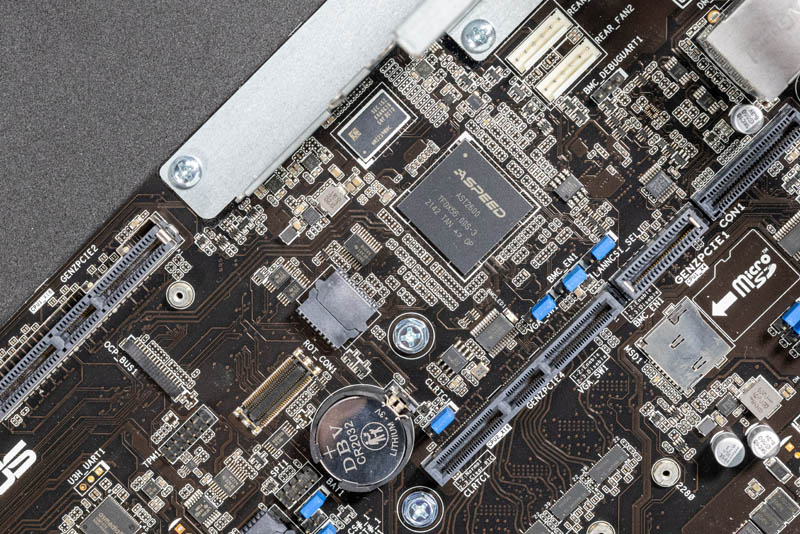
The PCIe situation is certainly interesting. The left rear riser has two PCIe Gen5 x16 slots. One can either use a single x16 slot, or run them both in PCIe Gen5 x8 electrical mode.
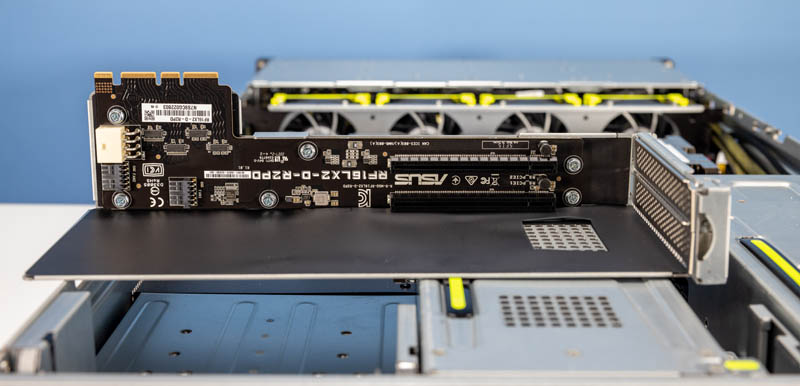
The top middle riser is exactly the same and is interchangeable.
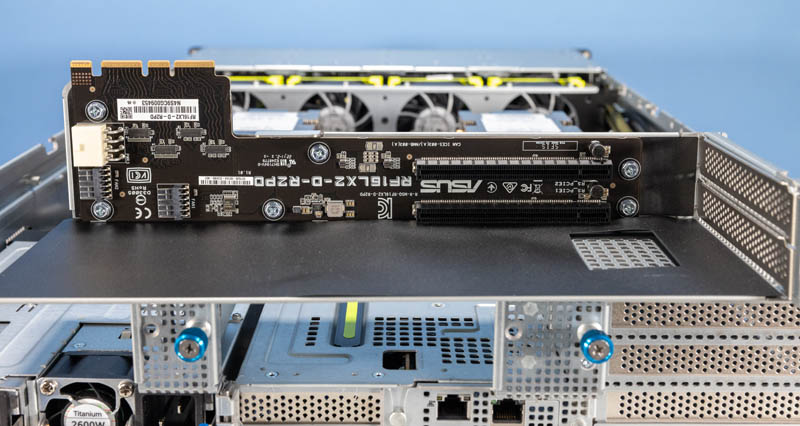
The right rear riser has a bit more going on. The top two slots (the riser is upside down in the photo below) can be x16/x0 or x8/x8. The bottom two slots can be the same or support an OCP NIC 3.0 expansion module that can be added to the system. We did not have this OCP NIC 3.0 expansion module since it is an option in the system. ASUS does this to deliver models that support 4x dual-slot GPU/ accelerator designs in the same chassis.
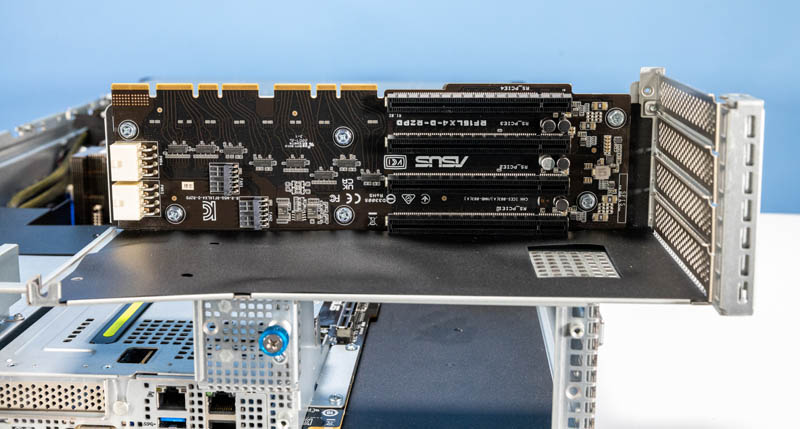
The middle riser with the low profile slot is perhaps the most interesting. Here we get the optional networking along with a number of slots.
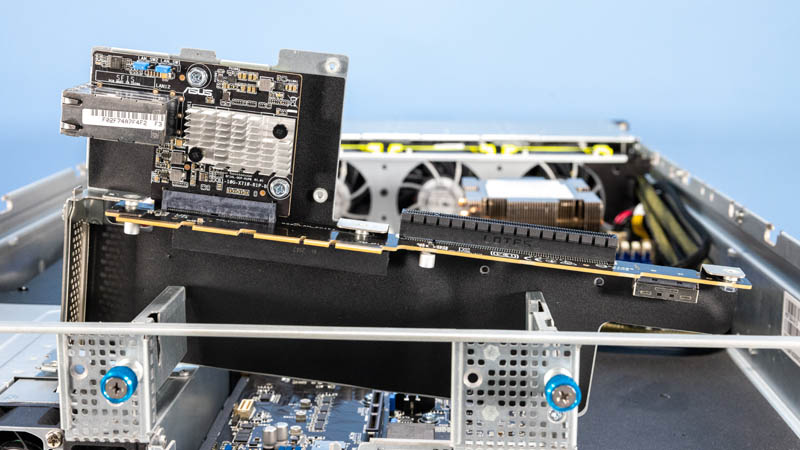
The riser has an internal slot, likely for a SAS RAID controller or HBA. That slot can be used without blocking the nine rear slots. One can also see the 10Gbase-T module we have here.
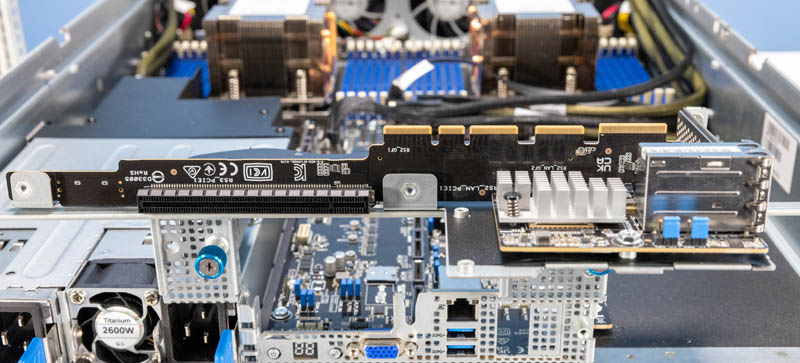
The other side has a PCIe Gen5 x16 low-profile slot.
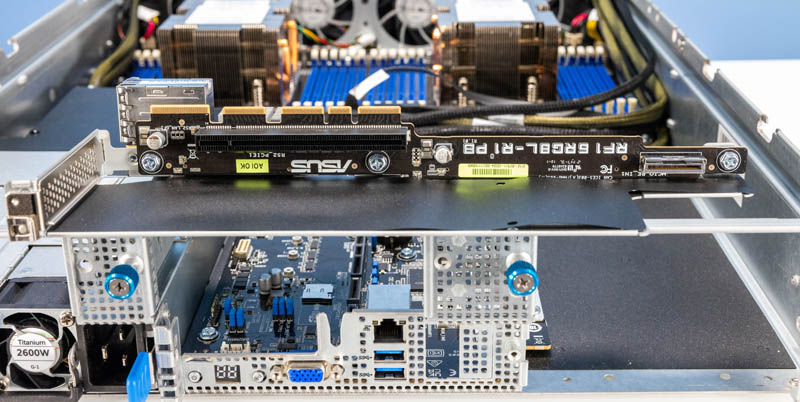
Needless to say, a lot is happening here regarding PCIe expandability. Next, let us get into the system’s topology to understand how it is all wired.

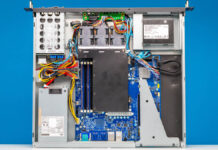
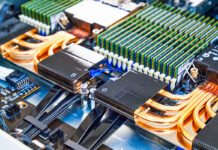
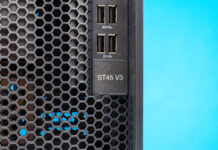
Thank you Patrick.
It’s really interesting to see such performance with traditional cooling solution.
As you mentioned, other vendors are using quite impressive cooling solutions like closed loop liquid cooling or big radiators with heat pipes.
I wonder how such design like the one Asus used will cope with full rack scale.
How big is the loudness of this server ?
This is the best server I’ve seen from Asus or anyone else. How does Asus warranty compare to let’s say to Dell, hpe, Lenovo?
It looks like a fantastic server, love the focus on I/O without worrying so much about legacy interfaces like SAS. Unfortunately as far as I can see the prices are around USD 7000, EUR 6500, AUD 20k so a bit pricey for the homelab.
It isn’t a bad price for the enormous compute and I/O it provides.
HPE and Dell will indeed be coming along with their own equivalents along with vendor price inflation too.
Glad the likes of Asus and their counterpart Asrock, along with Supermicro exist, in all fairness 7K is easily within budget of the more advanced content-creators/homelabbers/home-AI-devs/smaller-companies dabbling in compute tasks/dev.
Well done Asus, a lovely very usable design sticking to industry standards and some backwards compatibility at realistic pricing. A super well done to STH for covering this. I know what is on my summer shopping list this year ;)